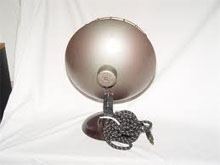
Electric Heaters Resources
- Home
- Efficient Electric Heaters
- Electric Heaters for Different Rooms
- Outdoor Electric Heaters
- Portable Electric Heaters
- 12 Volt Electric Heaters
- 220 Volt Heater
- 3 Phase Electrical Heater
- Above Ground Pool Electric Heater
- Antique Electric Heaters
- Baseboard Electronic Heaters
- Bathroom Electric Heaters
- Best Electric Heaters
- Buy Electric Heaters
- Car Electric Heaters
- Ceiling Electric Heaters
- Ceiling Mounted Electric Heaters
- Ceramic Electric Heaters
- Cheap Electric Heaters
- Commercial Electric Heaters
- Compact Electric Heaters
- Convection Electric Heaters
- DC Electric Heaters
- Economical Electric Heaters
- Efficient Electric Heaters
- Electric Heater Reviews
- Electric Heater With Thermostat
- Fahrenheat Electric Heaters
- Fan Forced Electric Heaters
- Fireplace Electric Heaters
- Flat Panel Electric Heaters
- Floor Electric Heaters
- Forced Air Electric Heaters
- Free Standing Electric Heaters
- General Electric Heaters
- Greenhouse Electric Heaters
- Halogen Electric Heaters
- Hanging Electric Heaters
- Heavy Duty Electric Heaters
- High Efficiency Electric Heaters
- Home Electric Heaters
- In Wall Electric Heaters
- Indoor Electric Heaters
- Industrial Electric Heaters
- Infrared Electric Heaters
- Infrared Electric Heater Reviews
- Large Electric Heaters
- Large Room Electric Heaters
- Low Wattage Electric Heaters
- Marine Electric Heater
- Mini Electric Heaters
- Non Electric Heaters
- Oil Electric Heaters
- Oil Filled Electric Heaters
- Overhead Electric Heaters
- Panel Electric Heaters
- Patio Electric Heaters
- Plug in Electric Heaters
- Process Electric Heaters
- Radiant Electric Heaters
- Recessed Electric Heaters
- Residential Electric Heaters
- RV Electric Heaters
- Safe Electric Heaters
- Small Electric Heaters
- Small Portable Electric Heaters
- Solar Electric Heaters
- Spa Electric Heaters
- Space Electric Heaters
- Swimming Pool Electric Heaters
- Toe kick Electric Heaters
- Tubular Electric Heaters
- Types of Electric Heaters
- Used Electric Heaters
- Vintage Electric Heaters
- Wall Electric Heaters
- Warehouse Electric Heaters
- Electric Heaters FAQ
General Electric Heaters
Heating systems had been introduced since thousands of years ago, from using the friction produced by rubbing rocks together to get a fire to the high-tech heaters operating on electricity, it have nonetheless prove itself to be an important part of our everyday lives.
Nowadays, each household are usually equipped with at least one heating system may it be running on electricity or fuel. General electric heaters would be the option most go for as their energy efficiency is higher. Besides, their friendlier approach to the environment and cost savings are points that many take in account of.
Radiant Heaters
This type of heater is does not heat up the air but is optimum for heating up specific areas or objects directly and quickly. They consist of a bulb which produces heat and a reflector which directs heat at certain bodies. The heat is transferred as infrared radiation in the air and is converted into heat energy as it hits an object. This quality is crucial to its energy saving scheme as heat energy does not need to pass through many stages and will also lead to low operational costs. But the lack of overheating protection in radiant heaters poses great danger of igniting nearby things as the temperature radiated can be quite high compared to general electric heaters.
Fan Heaters
Fan heaters are also known by the name of forced fan heaters or forced air heaters as they operate by forcing heated air through ducts to the specific places required. The electrical fan in it speeds up the airflow, allowing heat energy to spread to different areas rapidly. They are used optimally in enclosed spaces due to their quick heating system. Fan heaters more commonly used as a central heating system if compared to other general electric heaters as they can emit heated air for a large area. The disadvantage of this heating system is that it produces noise when it works.
Convection Heaters
Unlike fan heaters, convection heaters transfer heat passively, only relying on air circulation to distribute the heat energy it produces. Therefore, they can be switched on for a longer period of time with minimal risk of overheating. Besides operating on electricity, it may also produce heat by using hot water coils or steam coil. Convection heaters also operate silently, without noise. The only down side of this type of heaters is that it heat up an area slower in compared with general electric heaters.
Overall, different types of heaters have its pros and cons that should be taken into consideration. Factors such as the space that requires heating and the duration of heating can affect the efficiency of the heater and also the operating costs.
Proper maintenance should be done to ensure that all general electric heaters can reach their maximum efficiency, providing the best value to consumers. We should utilize the technology available and choose the best that fits the budget and system required so that energy will not be wasted while also being able to play a part in saving our natural resources at the same time.
